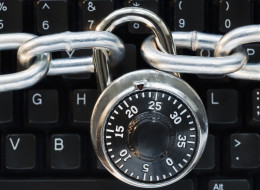When Goldman Sachs talks, people all over the world listen. Today Goldman is talking about the blockchain. What the heck is the"blockchain"? Only the next biggest thing since the Internet, according to such tech visionaries such as noted venture capitalist Marc Andreessen.
 For most of those outside of Silicon Valley and other tech centers, the blockchain is some mysterious computer thing that works with Bitcoin. What they may fail to realize is that the blockchain could completely change the world by allowing us to finally establish true trust and accountability online.
For most of those outside of Silicon Valley and other tech centers, the blockchain is some mysterious computer thing that works with Bitcoin. What they may fail to realize is that the blockchain could completely change the world by allowing us to finally establish true trust and accountability online.
We got a glimpse of the blockchain future when nine of the world's largest banks, including Goldman Sachs and Barclays, announced that they would create a Blockchain system to use for establishing trust and managing transactions in global financial markets.
A blockchain is public ledger of transactions that is distributed among all participants in a market or system. Each transaction that happens within a market or system must be verified by a strong majority of participants. It's very difficult to falsify transactions in a blockchain because each transaction generates a strong cryptographic signature. Once a transaction is entered in the public ledger, it cannot be erased. Because every transaction is public record and known to everyone in the blockchain, it's nearly impossible to hide untoward activities.
What this means is that complete strangers can transact business without ever meeting each other or really trusting each other. The other part of blockchain, which is equally intriguing, is that it allows for very rapid settling of transactions. With stock trades, for example, today it takes nearly a week for most trades to officially "clear." With a blockchain infrastructure, a trade could clear as fast as the bits cross the wires.
There's more. Financial applications are only one of the possible use cases. Blockchain is much bigger than finance. Medical records and voting records could be secured and verified by blockchain. Small businesses could use blockchain to create trusted trading platforms among themselves. There are a number of high-profile startups, such as Ethereum, trying to make toolkits that would allow anyone to build their own blockchain-based applications and markets without having to build the complicated and technologically taxing guts of the blockchain.
According to venture capitalist and blockchain expert William Mougayar who has built a database of blockchain startups, there are nearly 500 blockchain-based startups across more than four dozen sub-categories including media, health, education and, of course, many flavors of finance. (Below is a list of those startups, grouped by sub-category)
No comments:
Post a Comment